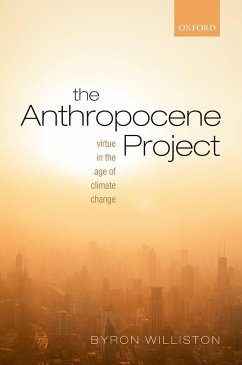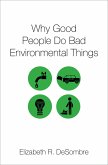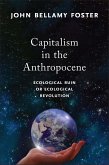The evidence presented in the recently released Fifth Assessment Report (AR5) of the Intergovernmental Panel on Climate Change (IPCC) suggests strongly that continued failure to make meaningful cuts to greenhouse gas emissions could bring about disastrous results for the human community, especially for future generations. Summing up the findings of AR5, Rajendra Pachauri, chairman of the IPCC, has stated that our persistent inaction on climate change presents a grave threat to the very social stability of human systems. The Anthropocene Project attempts to make philosophical sense of this, examining the reasons for the inaction highlighted by the IPCC, and suggests the normative bases for overcoming it. Williston identifies that we are now in the human agethe Anthropocenebut he argues that this is no mere geological marker. It is instead best viewed as the latest permutation of an already existing moral and political project rooted in Enlightenment values. The author shows that it can be fruitful to do climate ethics with this focus because in so many aspects of our culture we already endorse broadly Enlightenment values about progress, equality, and the value of knowledge. But these values must be robustly instantiated in the dispositions of moral agents, and so we require a climate ethics emphasizing the virtues of justice, truthfulness, and rational hope. One of the books most original claims is that our moral failure on this issue is, in large part, the product of motivated irrationality on the part of the world's most prosperous people. We have failed to live up to our commitments to justice and truthfulness because we are, respectively, morally weak and self-deceived. Understanding this provides the basis for the rational hope that we might yet find a way to avoid climate catastrophe.
Dieser Download kann aus rechtlichen Gründen nur mit Rechnungsadresse in A, B, BG, CY, CZ, D, DK, EW, E, FIN, F, GR, HR, H, IRL, I, LT, L, LR, M, NL, PL, P, R, S, SLO, SK ausgeliefert werden.









